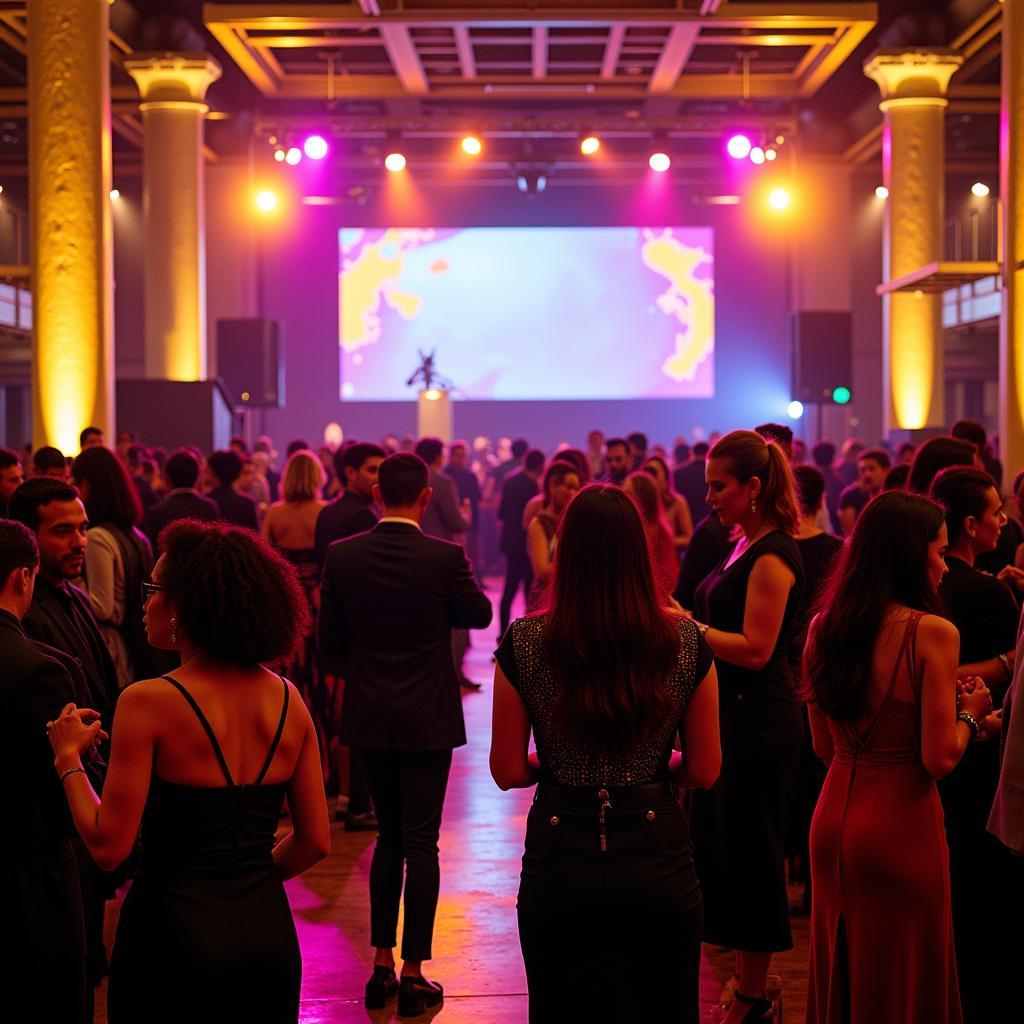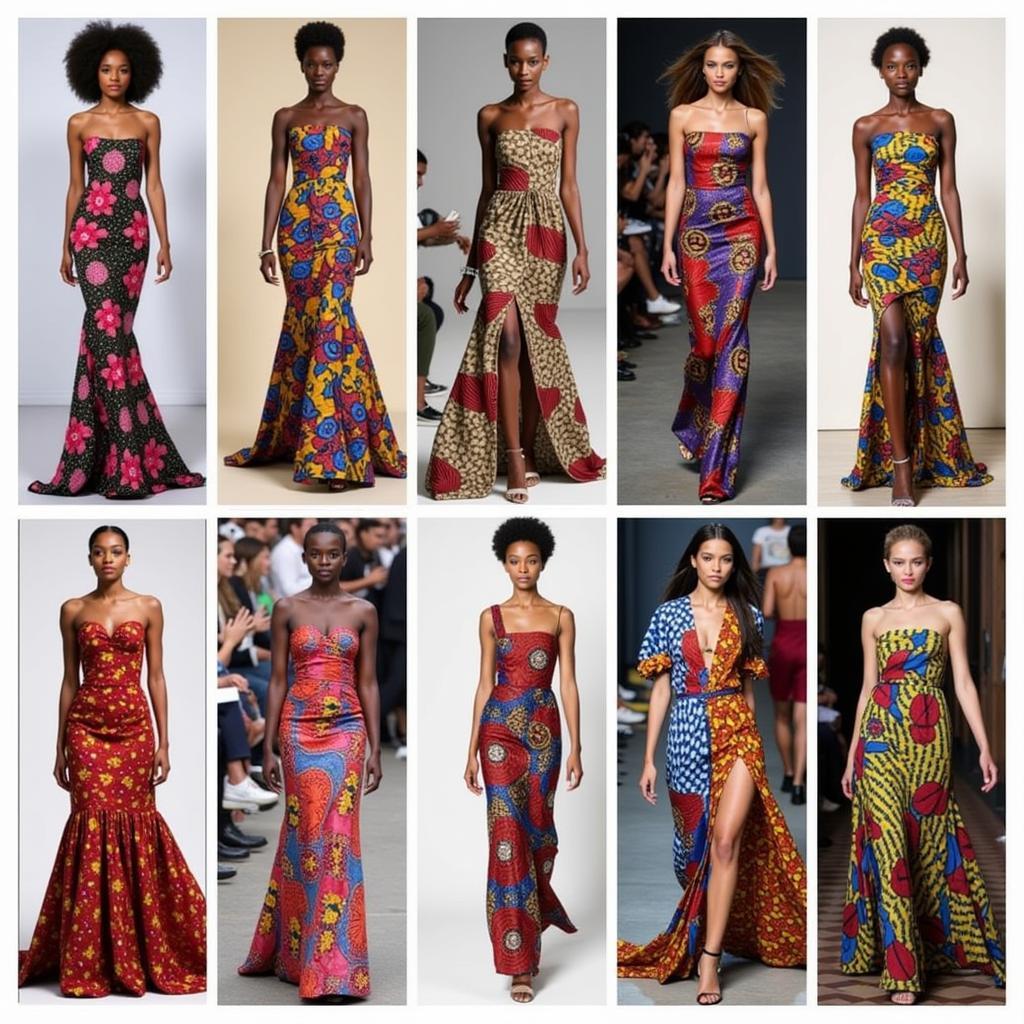Exploring African Holidays and Festivals
African Holidays And Festivals offer a vibrant tapestry of cultural richness, showcasing the continent’s diverse traditions and heritage. From ancient rituals to modern celebrations, these events provide a unique window into the heart and soul of Africa. They are a testament to the resilience, creativity, and deep-rooted spirituality of its people. Let’s delve into the captivating world of African holidays and festivals and discover the magic they hold.
A Kaleidoscope of Celebrations: Understanding African Holidays and Festivals
African holidays and festivals are far more than just days off; they are deeply ingrained in the fabric of society, often marking important agricultural cycles, historical events, or religious observances. These celebrations are a vibrant expression of community spirit, bringing people together through music, dance, storytelling, and elaborate rituals. They are a time to honor ancestors, celebrate life, and reaffirm cultural identity.
Many African holidays and festivals are rooted in ancient traditions passed down through generations. These can include harvest festivals, initiation rites, and ceremonies honoring deities. Others commemorate historical events, such as independence days or the end of apartheid. Religious festivals, both Christian and Muslim, also play a significant role in the lives of many Africans.
Experiencing an African holiday or festival is an unforgettable journey into the heart of a community. Whether it’s the rhythmic drumming of a traditional dance, the vibrant colors of ceremonial attire, or the shared stories around a crackling fire, these celebrations offer a profound connection to the spirit of Africa.
After this brief introduction, let’s explore some specific examples of African holidays and festivals. You might be surprised at the diversity you encounter! Check out our post about African Christmas Tree for a glimpse into unique holiday traditions.
Harvest Festivals: Celebrating the Bounty of the Land
Across Africa, harvest festivals are a time of rejoicing and gratitude for the earth’s abundance. These festivals often involve elaborate ceremonies, vibrant costumes, and traditional dances that express thanks for a successful harvest and pray for prosperity in the coming year. From the Yam Festival in West Africa to the Umhlanga Reed Dance in Eswatini, these celebrations highlight the crucial role agriculture plays in African Life.
For example, the Homowo festival celebrated by the Ga people of Ghana is a vibrant display of gratitude for a bountiful harvest. The festival is marked by a ban on drumming and noise-making for several weeks leading up to the main event. This period of quiet reflection is followed by a joyous eruption of celebration, with feasting, dancing, and traditional drumming.
Rites of Passage: Marking Life’s Milestones
Many African cultures mark significant life transitions with elaborate rites of passage. These ceremonies, often steeped in symbolism and tradition, signify the transition from one stage of life to another, such as birth, puberty, marriage, and death. These rituals reinforce community bonds and transmit cultural knowledge to the next generation.
For instance, among the Maasai people of Kenya and Tanzania, the coming-of-age ceremony for young warriors involves a series of trials and rituals, culminating in the symbolic circumcision that marks their transition into adulthood.
You might be interested in learning more about the African Hindu population and their unique traditions and celebrations.
Religious Festivals: Expressions of Faith and Devotion
Religious festivals play a central role in the lives of millions of Africans. From Christmas and Easter for Christians to Ramadan and Eid al-Adha for Muslims, these holidays are observed with great reverence and often involve special prayers, feasts, and acts of charity. These celebrations often blend indigenous traditions with religious practices, creating unique cultural expressions.
Remembering the Past: Commemorative Holidays and Festivals
Many African countries observe holidays that commemorate significant historical events, such as independence days or the end of colonialism. These occasions are a time to reflect on the struggles of the past and celebrate the achievements of the present, reaffirming national identity and fostering a sense of unity.
For instance, South Africa celebrates Freedom Day on April 27th, commemorating the first democratic elections held in 1994, marking the end of apartheid. This day is a powerful symbol of hope and reconciliation. Want to know more about African holidays celebrated in America? Follow the link!
Cultural Festivals: Showcasing Artistic Expression
Numerous cultural festivals across Africa celebrate the continent’s rich artistic heritage. These festivals showcase traditional music, dance, storytelling, and craftsmanship, providing a platform for artists to share their talents and preserve cultural traditions. These events also attract tourists from around the world, fostering cultural exchange and promoting understanding. Ever heard of the African Beach Dance? It’s a vibrant celebration of music and movement.
Conclusion
African holidays and festivals provide a captivating glimpse into the continent’s rich and diverse cultural heritage. From ancient rituals to modern celebrations, these events offer a unique opportunity to experience the heart and soul of Africa. So, whether you’re drawn to the rhythmic drumming of a harvest festival, the vibrant colors of a cultural celebration, or the solemn observance of a religious holiday, exploring African holidays and festivals is a journey you won’t soon forget. Begin your exploration of African holidays and festivals today and discover the magic they hold.
FAQ
- What is the significance of harvest festivals in Africa?
Harvest festivals are a time of thanksgiving and celebration for the abundance of the earth. - What are some examples of rites of passage in African cultures?
Examples include coming-of-age ceremonies, marriage rituals, and funeral rites. - How do religious festivals in Africa blend indigenous traditions with religious practices?
They often incorporate local customs, music, and dance into religious observances. - Why are commemorative holidays important in African countries?
They provide an opportunity to reflect on the past and celebrate national identity. - What is the role of cultural festivals in preserving African artistic heritage?
Cultural festivals showcase traditional arts and provide a platform for artists. - How can I experience African holidays and festivals?
You can attend local events, travel to Africa, or explore online resources. - Are there any resources for learning more about specific African holidays and festivals?
Yes, numerous websites, books, and cultural centers offer information.
Other questions you might have:
- What are the most popular festivals in North Africa?
- How do African festivals differ from region to region?
- What is the best time of year to experience African festivals?
Check out our article on African clubs in Doha for a glimpse into another facet of African culture.
Need Help?
For assistance with planning your African adventure, contact us at:
Phone: +255768904061
Email: [email protected]
Address: Mbarali DC Mawindi, Kangaga, Tanzania.
Our customer service team is available 24/7.


